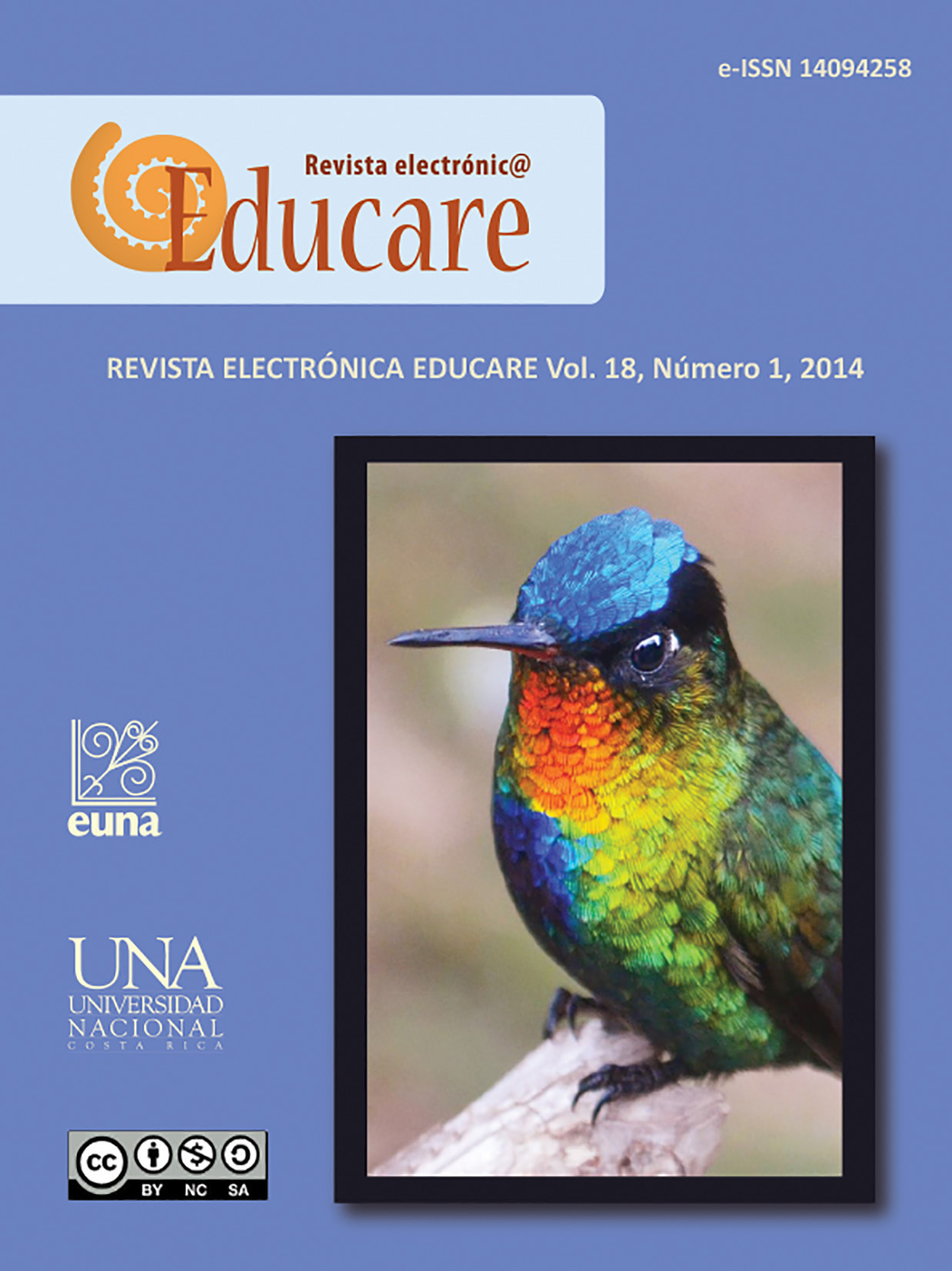Essential Elements to Guide Novice Professionals in the Design of an Orientation Model
DOI:
https://doi.org/10.15359/ree.18-1.12Keywords:
Design, model, counseling, novice, professional development.Abstract
This article is based on a class taught by the author in a Professional Development workshop addressed to students majoring in Counseling. The paper includes basic elements that must be taken into consideration to prepare the design of a work model, which should be used as the referent to guide the counseling process for interns as well as for new professionals. The article provides a general overview of each element in the design, including the importance of knowing the general philosophical framework of the Counseling field. It briefly describes the step-by-step process to be followed from each theoretical and practical referent. In addition, it includes the ethics component required to promote the ethical performance of duties of every professional and the compliance with the code ruling the professional’s expected behavior. A brief review of the necessary attitude of professionals is included at the end as well as the role to be taken in the different areas. The article is aimed at offering novice professionals with a guide that will help them develop the expertise necessary to add an epistemological positioning to their practice.
References
Bisquerra, R. (Coord.). (2000). Modelos de orientación e intervención psicopedagógica (Cap. 1). Barcelona: Ciss Praxis. Recuperado de http://dialnet.unirioja.es/servlet/libro?codigo=5029
Gavilán, M. (enero-diciembre, 2007). La formación de orientadores en contextos complejos con especial referencia a Latinoamérica. Orientación y sociedad, 7, 1-15. Recuperado de http://www.scielo.org.ar/pdf/orisoc/v7/v7a04.pdf
Gordillo, M. V. (1988) Manual de orientación educativa. Madrid: Alianza Editorial.
Martín, A. V. y García, J. (2009). El pluralismo metodológico en la investigación educativa: Los supuestos ontológico, epistemológico y metodológico (Cap. 2). En A. V. Martín y M. E. Venegas (Coords.), Investigación y formación. Teoría y práctica de la investigación eductiva en la formación de educadores (Vol. II, Manual de posgrado). San José, Costa Rica: SIEDIN.
Ministerio de Educación Pública. (1994). Política educativa hacia el siglo XXI. San José, Costa Rica: Autor. Recuperado de http://www.mep.go.cr/politica-educativa
Montané, J. (1993). Orientación ocupacional. Barcelona: Grupo Editorial CEAC.
Piaget, J. (1970). El origen de las estructuras lógicas y matemáticas según la epistemología genética. (Cap. I y II, Trad. G. L. Piscoya). Columbia, New York: University Press.
Rotger, B. (1989). Evaluación formativa. (Vol. 9 de Serie Educación y futuro). Bogotá: Cincel, Kapelusz.
Downloads
Published
How to Cite
Issue
Section
License
1. In case the submitted paper is accepted for publication, the author(s) FREELY, COSTLESS, EXCLUSIVELY AND FOR AN INDEFINITE TERM transfer copyrights and patrimonial rights to Universidad Nacional (UNA, Costa Rica). For more details check the Originality Statement and Copyright Transfer Agreement
2. REUTILIZATION RIGHTS: UNA authorizes authors to use, for any purpose (among them selfarchiving or autoarchiving) and to publish in the Internet in any electronic site, the paper´'s final version, both approved and published (post print), as long as it is done with a non commercial purpose, does not generate derivates without previous consentment and recognizes both publisher's name and authorship.
3. The submission and possible publication of the paper in the Educare Electronic Journal is ruled by the Journal’s editorial policies, the institutional rules of Universidad Nacional and the laws of the Republic of Costa Rica. Additionally, any possible difference of opinion or future dispute shall be settled in accordance with the mechanisms of Alternative Dispute Resolution and the Costa Rican Jurisdiction.
4. In all cases, it is understood that the opinions issued are those of the authors and do not necessarily reflect the position and opinion of Educare, CIDE or Universidad Nacional, Costa Rica. It is also understood that, in the exercise of academic freedom, the authors have carried out a rogorous scientific-academic process of research, reflection and argumentation thar lays within the thematic scope of interest of the Journal.
5. The papers published by Educare Electronic Journal use a Creative Commons License:















 The articles published by Educare Electronic Journal can be shared with a Creative Commons License:
The articles published by Educare Electronic Journal can be shared with a Creative Commons License: 



